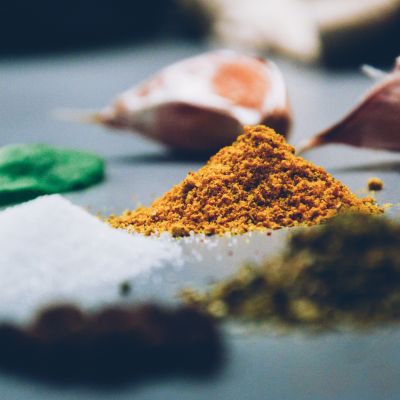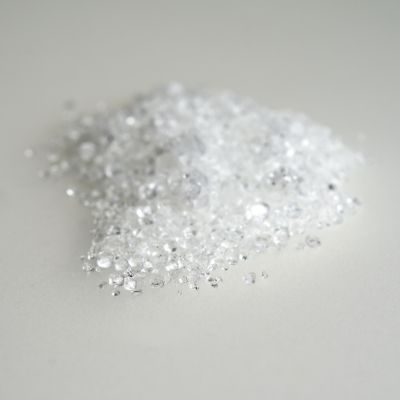The simple yet definitive answer is yes, as these fried treats offer little to no nutritional value and can lead to negative health effects if consumed frequently. Packed with unhealthy fats and high sodium levels, potato chips can potentially lead to weight gain and other health issues.
The main ingredients in potato chips—potatoes, vegetable oil, and salt—might seem harmless; however, the preparation process makes all the difference.
When fried in oil at high temperatures, potatoes become energy-dense, with little nutritional value. Moreover, their addictive nature often leads to overeating, further aggravating their damaging effects on health.
Individuals should consider replacing potato chips with healthier alternatives, such as lightly salted popcorn or baked vegetable chips to mitigate these effects. With more nutritious choices added to their diet, people can still enjoy tasty snacks without compromising their well-being.
Key Takeaways
Potato Chip Ingredients
When discussing potato chips, it’s important to examine their ingredients to understand their impact on health better. We will break down the primary ingredients found in most commercially-produced potato chips into the following sub-sections: Fats and Oils, Seasonings, and Preservatives.
Fats and Oils
Potato chips are typically fried or baked to achieve their crispy texture. Most chips are fried in vegetable oils like sunflower, corn, or canola oil. These oils tend to be high in polyunsaturated and monounsaturated fats, which are considered healthier than saturated or trans fats source.
However, the high-temperature frying process may create harmful substances like acrylamide, which is associated with an increased risk of cancer.

Seasonings
To ensure a long shelf life, potato chips often contain preservatives. Common preservatives found in potato chips include butylated hydroxyanisole (BHA) and butylated hydroxytoluene (BHT), which have antioxidant properties.
While these substances prevent the chips from going rancid, there are concerns about their potential health effects, and further studies are needed to establish their safety source.
Potato chips are usually seasoned with salt, spices, and flavorings. While a moderate amount of salt is essential for bodily functions, consuming excessive amounts can lead to high blood pressure and an increased risk of heart disease.

In addition to salt, chips may contain artificial flavorings or colorings. Some studies have suggested that certain artificial additives may have negative health effects, but more research is needed to fully understand the potential risks source.
Preservatives
To ensure a long shelf life, potato chips often contain preservatives.
Common preservatives found in potato chips include butylated hydroxyanisole (BHA) and butylated hydroxytoluene (BHT), which have antioxidant properties.
While these substances prevent the chips from going rancid, there are concerns about their potential health effects, and further studies are needed to establish their safety source.

In summary, the ingredients in potato chips—fats and oils, seasonings, and preservatives—play a critical role in their taste, texture, and shelf life. Understanding the effects of these ingredients on health can help inform personal eating choices and contribute to a more balanced diet.
Health Impacts of Potato Chips
Weight Gain and Obesity
Potato chips are high in calories and fat, which can contribute to weight gain if consumed in large quantities. A standard serving of potato chips contains about 149 calories and 9.5 g of fat. Their addictive nature can lead to overeating, making stopping at just one serving difficult. This behavior, referred to as hedonic hyperphagia, describes eating for pleasure rather than hunger.
Cardiovascular Disease
The high sodium levels in potato chips can potentially lead to an increased risk of cardiovascular problems. A typical serving of chips can have between 120 and 180 milligrams of sodium per ounce. Consuming excessive amounts of sodium can cause an increase in blood pressure, ultimately leading to stroke, heart failure, coronary heart disease, and kidney disease. Moreover, poor heart health can be exacerbated if you already have high blood pressure.
Diabetes
Potato chips, being high in unhealthy fats and simple carbohydrates, can contribute to insulin resistance and an increased risk of developing type 2 diabetes. A diet high in processed and sugary foods can lead to obesity, which is a major risk factor for type 2 diabetes. Cutting down on unhealthy snacks like potato chips and replacing them with healthier alternatives is a good strategy to prevent the onset of diabetes.
Cancer
Although more research is needed to establish a strong link between potato chip consumption and cancer, some studies have indicated that the high levels of acrylamide found in fried and processed foods could pose a risk. Acrylamide is a chemical compound that forms in some foods, particularly those cooked at high temperatures like potato chips.
Some studies have shown that acrylamide may be a potential carcinogen, but further research is required to understand the implications of its consumption fully.
Alternatives to Potato Chips
There are various alternatives to traditional potato chips when looking for healthier snack options.
These alternatives provide numerous nutritional benefits and help satisfy cravings without the high calorie and fat content in regular potato chips.
Baked Chips and Crackers
Baked chips offer a lower-fat alternative to fried chips, which are cooked with less oil. Similarly, whole grain crackers provide an excellent source of fiber without the guilt of indulging in unhealthy snacks.
Various baked chips and crackers are available, such as Terra Original Mixed Vegetable Chips. These chips contain more fiber and less sodium compared to regular potato chips.
Popcorn
Air-popped popcorn is another healthier alternative to potato chips. It contains lower calories, less fat, and provides a good source of fiber. Opting for plain popcorn or lightly seasoned varieties can help maintain a healthy diet while satisfying cravings for a crunchy snack. Avoid using excessive amounts of butter and salt, as this can diminish the health benefits.
Vegetable and Fruit Chips
Vegetable and fruit chips can be a nutritious and delicious alternative to potato chips. They can be made with a variety of ingredients, such as kale, beetroot, zucchini, and apples.
These chips can be easily prepared at home by oven-roasting or air-frying thin slices of the chosen vegetable or fruit. An example of a store-bought option is the Pulp Pantry Pulp Chips, offering a healthier choice with increased fiber.
Making Healthier Choices
When it comes to snacking on potato chips, there are ways to make healthier choices to minimize the potential negative effects on your health.
Portion Control
One of the biggest challenges with potato chips is the ease of overconsumption. To help manage this, consider pre-portioning servings of chips into smaller bags or containers. This can help limit your intake and prevent mindless snacking.
Opt for a smaller serving size instead of indulging in an entire bag. It is crucial to remember that moderation is key when it comes to enjoying this salty treat.
Reading Labels
Paying close attention to the nutritional information and ingredients list on chip packaging can significantly impact your snack choice. Look for options with lower sodium content, as higher levels can contribute to issues like high blood pressure. If possible, select chips with reduced or no artificial additives and preservatives.
Moreover, check for the type of oil used for frying the chips. Healthier options include chips fried in vegetable or sunflower oil instead of saturated fat-laden alternatives. Some brands also offer baked varieties instead of fried, which can help reduce overall fat content.
By being mindful of these factors, you can make more informed decisions regarding your chip consumption and opt for healthier alternatives when available.
Frequently Asked Questions
What are the health effects of eating potato chips regularly?
Eating potato chips regularly can lead to weight gain, as they are high in fat and calories 1.
Excess consumption of salt, commonly found in chips, may also negatively affect heart health, particularly for individuals with high blood pressure 2.
How do potato chips impact overall nutrition?
Potato chips have little to no nutritional value, as they are mainly composed of fried carbohydrates, fat, and salt 3.
They do not provide significant amounts of vitamins, minerals, or fiber, and can contribute to an unbalanced diet when consumed frequently.
How do store-bought and homemade potato chips differ in health aspects?
Store-bought potato chips are typically higher in fat, salt, and preservatives than homemade chips.
Homemade chips can be healthier if they are baked or air-fried instead of deep-fried and seasoned with minimal salt or other seasonings.
Can potato chips be a part of a balanced diet?
In moderation, potato chips can be a part of a balanced diet. However, consuming them in limited amounts is essential, as they are high in calories, fat, and salt. Pairing them with healthier options, like a vegetable dip or a piece of fruit, can also help balance the nutritional content of your snack.
What are healthier alternatives to potato chips?
Healthier alternatives to potato chips include vegetable chips, air-popped popcorn, whole grain crackers, or nuts. These options are typically lower in fat and calories and provide more nutritional value, such as fiber, vitamins, and minerals.
Which potato chip brands have better nutritional value?
Some potato chip brands are slightly healthier than others due to reduced fat, salt, or artificial additives. Opt for chips cooked in healthier oils, like olive or avocado oil, and look for brands with minimal additives and preservatives in their ingredients list.





Leave a Reply